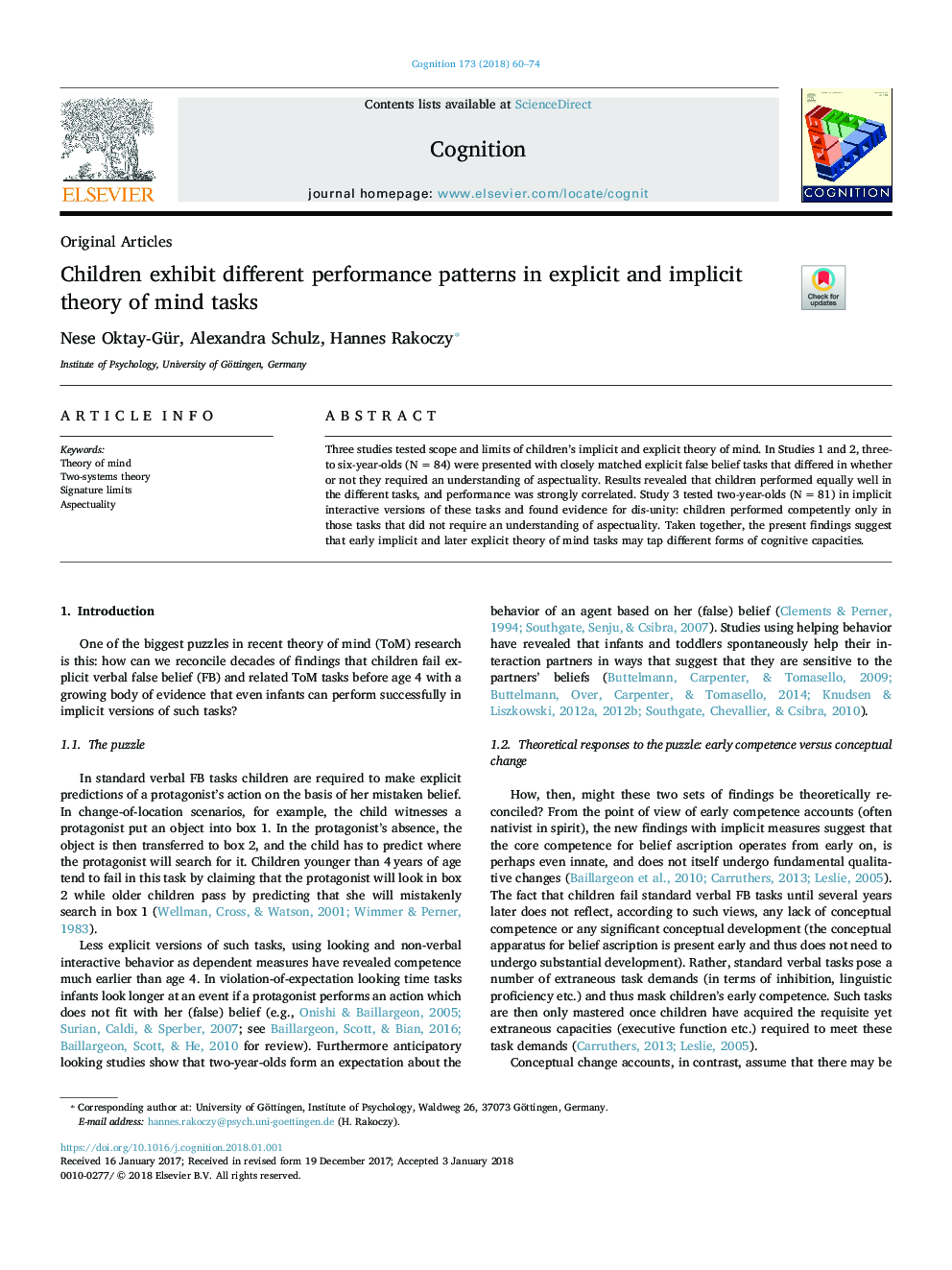| Article ID | Journal | Published Year | Pages | File Type |
|---|---|---|---|---|
| 7285455 | Cognition | 2018 | 15 Pages |
Abstract
Three studies tested scope and limits of children's implicit and explicit theory of mind. In Studies 1 and 2, three- to six-year-olds (Nâ¯=â¯84) were presented with closely matched explicit false belief tasks that differed in whether or not they required an understanding of aspectuality. Results revealed that children performed equally well in the different tasks, and performance was strongly correlated. Study 3 tested two-year-olds (Nâ¯=â¯81) in implicit interactive versions of these tasks and found evidence for dis-unity: children performed competently only in those tasks that did not require an understanding of aspectuality. Taken together, the present findings suggest that early implicit and later explicit theory of mind tasks may tap different forms of cognitive capacities.
Keywords
Related Topics
Life Sciences
Neuroscience
Cognitive Neuroscience
Authors
Nese Oktay-Gür, Alexandra Schulz, Hannes Rakoczy,
